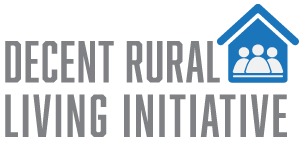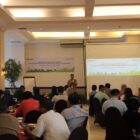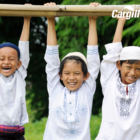Children should not work in palm oil plantations. This has been the premise of a two-year collaboration between GAR, Nestle, the Earthworm Foundation, GAR’s palm oil suppliers and related stakeholders in East Kalimantan.
In the last decade, the industry has succeeded in significantly reducing deforestation from palm oil expansion; improvements in social sustainability performance are less clear.
The media likes to report on “widespread” violations of human and labour rights in palm oil, but that is not GAR’s experience. The GAR Social and Environmental Policy (GSEP) launched in 2015, includes the commitment to no child labour. Since then, our supply chain team has conducted more than 100 on-site visits to assess our suppliers’ compliance with our policy, and we’ve never observed a child worker during these visits. We also know that it is notoriously difficult to spot these on announced visits, so we do look out for factors or root causes that could lead to children being on plantations. For example, we identified a lack of awareness and inadequate capabilities on the part of suppliers that could create the conditions for children to be in plantations.

Building supplier awareness and co-creating solutions
In 2019, we made a decision to come up with solutions for the issue of children in plantations, by starting with a workshop in April. To raise awareness, understand challenges and develop action plans. Each participant – representing different stakeholder groups – shared their unique point of view. After two days of collaboration, they concluded with a three-part joint outcome.

Firstly, the challenge of children in plantation has the following root causes:
- Grower companies do not employ children as a matter of legal compliance and policy. Still, in some cases, workers bring their children to plantations to help out.
- Parents have little or no access to childcare centres, schools, reading facilities and playgrounds and to transportation to and from schools
- Regulations are unclear, and monitoring by government and civil society is lacking
Secondly, every participant must commit to developing organisation-specific action plans based on these general solutions:
- Raise the organisation’s awareness of regulations related to labour compliance
- Improve the organisation’s management, quality, and accessibility to education facilities
- Facilitate social dialogue with parent workers
- Conduct regular multi-stakeholder meetings
- Improve and optimise the monitoring function of labour inspectors
Thirdly, the participants’ inputs served to inform three related guidance documents to promote fair labour practices available on the Earthworm Foundation website
- Mitigating the Risks of Child Labour in Oil Palm Plantations
- Fair Employment of Casual and Temporary Workers
- Fair Target-Setting and Wage Policies
Keeping children in the top of mind of suppliers during a pandemic
Originally GAR planned to follow up in person with participating suppliers, ensuring they developed and implemented their organisation’s action plans. GAR also planned to expand outreach with suppliers in other provinces.
COVID- related travel restrictions meant that to maintain the momentum built in 2019 and keep children at the top of our suppliers’ minds all one-on-one coaching and discussions had to be moved online.
GAR and the Earthworm Foundation conducted a series of online gatherings in 2020 based on the guidance documents:
- “How to mitigate the risks of child labour in oil palm plantations” on 2 September
- “Fair employment of casual workers” on 23 September
- “How to set fair target and wage policies” on 21 October
A total of 103 supplier representatives attended the three gatherings.

During these gatherings, we walked through GAR best practices and directed participants to specific tools on the Earthworm Foundation website to help in their implementation. For example, the guidance document “Mitigating the Risks of Child Labour in Oil Palm Plantations” elaborates on the use of the following tools:
- References to child-relevant definitions and regulations
- SOP to check for the age of job applicants
- Sample of communications to raise internal awareness
- Responsibilities of key personnel such as the harvesting supervisor
- Checklist to assess the implementation of good practices

Looking forward to 2021, GAR will monitor the implementation of the action plans by our suppliers. We will continue to update our website to report on progress, highlight common industry challenges, and call for collaboration amongst industry actors.
No success without local engagement and local commitment
As with improving environmental practices, the journey to responsible social practices requires investment and most importantly, intimate engagement. End buyers adopting a no child labour policy on paper is insufficient. Only through local engagement, commitment, and action can industry actors ensure children’s rights – to learn in school, play with friends, and get a good night’s rest – are protected.
Read other articles about GAR’s collaboration with external labour experts
- International Labour Organisation
- Business for Social Responsibility
- The Danish Institute of Human Rights
- VERITE
- Earthworm Foundation
Original post by GAR
https://www.goldenagri.com.sg/palm-oil-actors-in-east-kalimantan-commit-to-respecting-children-rights/



